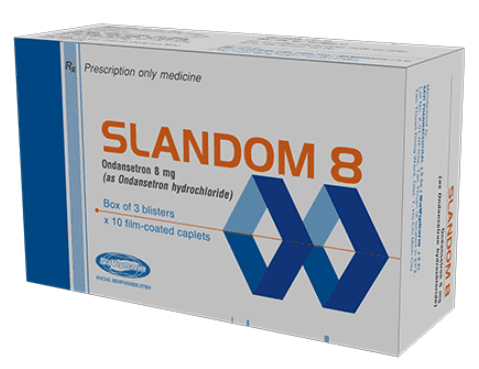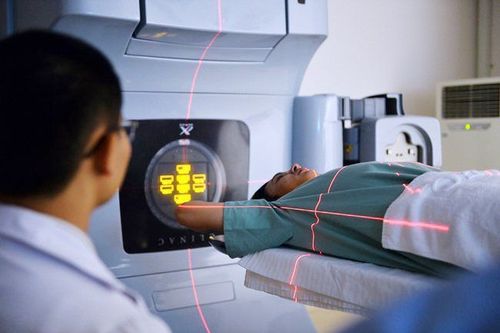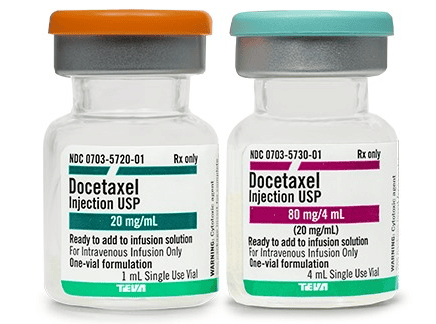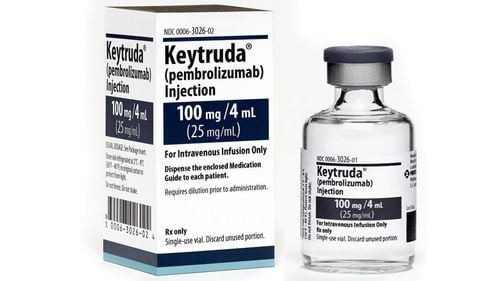This is an automatically translated article.
The article is professionally consulted by doctors working at Oncology Center - Vinmec Central Park International General HospitalRadiation therapy for cervical cancer and cancer of the body/womb are considered similar and are usually performed in two stages. The first stage is external radiation therapy. Radiation delivered from outside the body, delivered to the entire pelvis to include pelvic lymph node areas, followed by radiation delivered internally, is called internal radiation therapy.
This document explains and provides information to you:
When radiation therapy is used General information about treatment side effects Any side effects that may affect you and how to handle it Address when Do you need advice.
1. The role of radiation therapy in cervical cancer treatment
Radiation therapy is used as a radical (healing) treatment for cervical cancer. Sometimes radiation therapy is used to reduce the risk of the cancer coming back (so called adjuvant treatment) after a hysterectomy. Treatment of cervical cancer with radiation therapy is often combined with chemotherapy; Your doctor will discuss with you in more detail if this method should be applied in your case. If you require chemotherapy, you will need to visit the Hospital's Chemotherapy Department weekly on one of the days you receive radiation therapy. This approach has the potential to increase side effects so your recovery may be slower.
Radiation therapy is also used as an adjuvant treatment after hysterectomy in the treatment of uterine cancer.
Your oncologist will explain why radiation therapy is needed. External radiation therapy is given as a course of treatment, which usually lasts 4 to 5 weeks.
2. Prepare for treatment
When you come to the radiotherapy center, we will suggest that you drink some water before your treatment. This helps push the bowels out of the pelvis, reducing bowel-related side effects. Your bladder may feel different from day to day, but you should avoid being treated with a full or empty bladder. Your doctor will advise you in detail. You can eat and drink normally before your radiotherapy appointment.
3. General information about side effects in treatment
Every patient is different and you may not experience the same side effects of radiation therapy as others. Most side effects are only temporary. They usually start around the second week of treatment and will continue for the next several weeks as your radiation therapy ends. The symptoms will then subside for a few weeks, sometimes a few months, for the side effects to go away completely.
During your treatment, your radiation therapist or nurse will answer any questions and handle most of your problems.
Your doctor will also see you regularly throughout your treatment. It is important that you let your doctor know how you are feeling so we can choose the right medication for you and advise on how to handle it. Most people can be treated as an outpatient, but you can choose to be treated as an inpatient in one of our departments if you feel you need extra support.
4. Side effects during and immediately after the end of treatment
Your bladder Radiation therapy stimulates your bladder so you may urinate more often than usual, and you may feel a burning sensation. Tell your oncologist, radiation therapist or nurse if this feeling persists for a few days. We need to check your urine to rule out a urinary infection.
You can help yourself by drinking more water, at least 10 glasses a day until symptoms stabilize. Filtered water is best; carbonated drinks should be avoided. You should have no more than 1-2 cups of caffeinated beverages per day. Caffeine is commonly found in tea, coffee and cola soft drinks.
You can drink alcohol in moderation if you want, but stop if you notice any irritation in your body. Cut down on the amount of liquid you drink in the evening if you notice you urinate a lot at night.
Your Intestines Radiation treatment can irritate the intestines causing discomfort resembling abdominal cramps. You may have to urinate more often, sometimes passing only a small amount of stool. You may also feel the urge to have a bowel movement but only gas and mucus. Your doctor may suggest that you change your diet if these effects bother you. Let us know if you have anything to do with your bowels and if your bowel habits have changed.
Nausea Nausea may occur during radiation therapy to the abdomen and pelvis . We will prescribe medicine for you to help ease your symptoms. It is important that you receive treatment so that your eating is not affected.
Fatigue Feeling tired during treatment is quite common. Let us know if you feel tired. This state can persist for several weeks afterward.
It is important to rest when you feel the need. Please ask for help. If you live alone, do the bare minimum until you feel better.

Cảm giác mệt mỏi, buồn nôn có thể gặp trong suốt quá trình điều trị
Your skin Your skin in the treatment area may become slightly red, dry and itchy, looking like a sunburn - although this is not common. Your groin and the skin between your buttocks are often affected. The area around the back of the anus can be painful, especially when you have enemas (for cleaning). If your skin becomes uncomfortable, ask your radiation therapist or nurse for advice.
You can help yourself by:
Wear loose fitting clothing made of natural fibers such as cotton to allow air to circulate around the irradiated area. Wash the pelvic area gently in warm water with mild soap. Ideally, use the shower to wash, dry with a soft towel. Do not rub your skin. Use only creams recommended by your doctor. Hair loss Loss of pubic hair can occur but they will grow back as soon as you finish treatment.
Good diet Eat the best you can. That gives you the strength to treat and recover later. If you need more advice, we will arrange for you to see a dietitian.
Contraception and sexual activity If you are sexually active and could become pregnant you should use safe contraception ie condoms from the beginning of your treatment and for one year after the radiation. treat. You can continue to have sex during radiation therapy. Note that you may not be comfortable; You can use additional lubricants for assistance.
Early menopause Pelvic radiotherapy promotes menopause in people who are still menstruating. Symptoms of menopause (amenorrhea, facial flushing, dry skin, vaginal dryness, and difficulty concentrating) usually begin during or shortly after your radiation therapy. Your oncologist may recommend hormone replacement therapy (HRT), if symptoms bother you.

Các triệu chứng của thời kỳ mãn kinh thường bắt đầu trong hoặc ngay sau khi xạ trị
Possible long-term or permanent side effects Most side effects usually occur during the 1st or 2nd year, but can also start many years later.
Change in bowel habits It may take six months or more for the bowels to return to normal.
You may have to deal with a long-term change in bowel habits. This includes an urgent need to have a bowel movement, more frequent bowel movements, and stools that may be loose and bloody. In some people, bowel movements are related to the type of food eaten. The gut's ability to digest food can also be affected.
There may be serious damage to the intestines requiring surgery and the possibility of colitis. Less than 1 in 20 people need a bowel resection after radiation therapy for cervical/uterine cancer.
Bladder changes There is little risk of long-term changes to the bladder. Your bladder function may be different after treatment and may not return to normal. You can:
Urinate more often, especially at night; Unable to hold urine for long because the bladder wall loses its elasticity (ability to stretch). Dietary changes, bladder training, and medication can help, but sometimes these problems can be more troublesome. Sexual health The tissues of the vagina will be affected and make it narrower, shorter and less stretched than it was before the treatment. To reduce these effects, we recommend that you regularly use a vaginal dilator (smooth plastic tube). Even during sex, their use is recommended to cause as little discomfort as possible. You will be given more information, advice and a vaginal dilator during radiation therapy. Vaginal dryness can occur but the use of a water-based lubricant during intercourse is a commonly recommended solution. These changes can lead to discomfort during intercourse. Diagnosis and treatment can affect you in many ways, including sexual intimacy. If this affects you and/or your relationships, please tell your oncologist or gynecologist who can refer you to a counselor (for you or your family). both you and your wife).

Các mô của âm đạo sẽ bị hẹp, ngắn và giãn ít hơn so với trước khi điều trị
Blood detected Radiation therapy can affect tissues causing some blood in the urine, bowel movements or after sex. If you notice you are bleeding from the above areas, see your doctor immediately for further examination.
Risk of lymphedema Treatment can affect the lymph glands in the pelvis causing permanent swelling of the legs, called lymphedema. Most likely if you've had pelvic lymph node surgery, the addition of pelvic radiation therapy theoretically increases the risk. This risk is rare but can begin months or years after treatment.
To reduce the risk, it is important to avoid infection or inflammation of the feet and pelvis, so avoid cuts/gnaws, shaving, insect bites/bites, sunburn. Do gentle exercise regularly. You can choose to swim or walk. Use a foot moisturizer.
Some of the early signs you might notice are your shoes becoming tight, swollen ankles or heavy feet. If you see these signs or are concerned, consult your oncologist/gynecologist at follow-up appointments. A referral to a specialist in lymphedema may be considered. For more information about lymphedema, you can refer to the following article:
See also: Prevention of hand edema after breast cancer treatment Bone changes Changes in the pelvis may occur in the future, This is called a pelvic injury, and can cause fractures. It can cause a dull ache, but can be relieved with rest or pain medication. The doctor may order a bone scan to determine the cause, if necessary.
Monitoring and recovery Side effects may continue for a few weeks after the end of radiation therapy. In the meantime, continue to take any medicine we have given you. If you have any new nursing needs at the end of your radiation therapy, we will discuss this with you and can arrange for a suitable person to contact you. Contact them or your GP if you are having difficulty, especially with pain or problems affecting your eating and drinking. You can also contact the specialist at the radiation therapy center for advice.
It is important to make the right appointment with your oncologist. The first appointment is usually about six weeks after treatment ends.
It may take many months before you find that you have fully recovered. If you feel low or have mood swings, see your GP, oncologist or primary care specialist. Some people find it very helpful to have the support and sharing of people who have experience in cancer treatment. You can do this by joining a cancer support group.
Oncology Center - Vinmec Central Park International General Hospital is modernly built according to international standards, using a multi-specialty approach model in diagnosis, choosing the right treatment regimen for each patient. contribute to comprehensive patient care. Vinmec Central Park Cancer Center has outstanding advantages in cancer treatment such as:
Vinmec Convergence of experts who are good at radiation therapy, chemotherapy and surgery, equipped with modern facilities. The most modern radiotherapy planning system and Truebeam in Southeast Asia, with the outstanding advantage of minimizing the effects of radiation on benign tissues compared to X-rays, reducing irradiation time and the risk of adverse effects. side effects for patients.) effective treatment of common cancers: Lung, Head, neck, breast.... As the first hospital in Ho Chi Minh City to apply autologous immunotherapy, Vinmec Hospital Central Park can treat cancer with multimodal cancer treatment regimens suitable for each case, bringing high treatment efficiency, providing one more reliable cancer examination and treatment address for people. people in Ho Chi Minh City and surrounding areas, so that people do not have to go abroad for treatment
Please dial HOTLINE for more information or register for an appointment HERE. Download MyVinmec app to make appointments faster and to manage your bookings easily.













